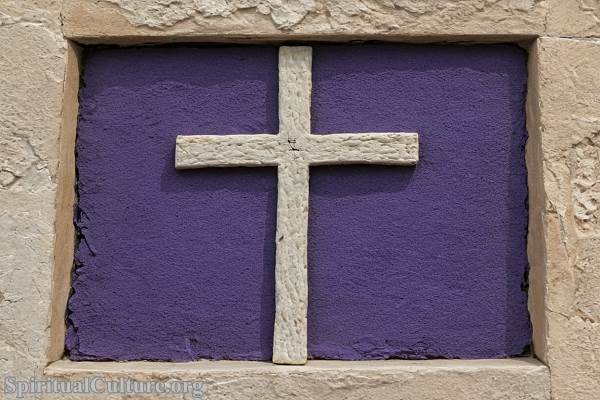Ash Wednesday holds a unique place in the Christian calendar, marking the beginning of the Lenten season—a period of 40 days leading to Easter, the celebration of Christ’s resurrection. Observed by millions across the globe, this solemn day is a time of reflection, repentance, and renewal. But what exactly is Ash Wednesday? Why does it carry such profound spiritual significance?
In this article, we’ll dive deep into the origins, history, and rituals of Ash Wednesday, its biblical and theological underpinnings, and how its observance has evolved over centuries. We’ll also explore its role in modern spirituality and practical ways to observe this meaningful day.
The History of Ash Wednesday
Early Christian Practices of Penitence
The concept of using ashes as a symbol of repentance predates Christianity and finds its roots in ancient Jewish traditions. In the Old Testament, ashes were often associated with mourning, humility, and penance. Examples include:
- Job 42:6: “Therefore I despise myself and repent in dust and ashes.”
- Daniel 9:3: “I turned to the Lord God and pleaded with him in prayer and fasting, and I wore sackcloth and sat in ashes.”
- Jonah 3:6: “The king of Nineveh…covered himself with sackcloth and sat down in the dust.”
For early Christians, these symbols carried forward into their expressions of remorse and spiritual renewal. However, it wasn’t until the early centuries of the Christian Church that ashes began to play a formal role in liturgical practices.
Institutionalizing Ash Wednesday
The observance of Ash Wednesday as we know it today began to take shape around the 6th century. Early Christian communities adopted the practice of marking the foreheads of penitents with ashes as a public sign of their remorse and commitment to spiritual growth.

It was in the 11th century that Pope Urban II officially established Ash Wednesday as the first day of Lent, a move that standardized its observance across the Western Church. The act of marking one’s forehead with ashes became a liturgical ritual, accompanied by the solemn reminder:
“Remember that you are dust, and to dust, you shall return.”
Evolution Over the Centuries
Ash Wednesday continued to evolve as it spread to different Christian traditions. In the Middle Ages, the use of ashes expanded from being solely for public penitents to all members of the congregation. This shift symbolized the universality of sin and the collective call to repentance.
While the Catholic Church retained Ash Wednesday as a cornerstone of its Lenten liturgy, the Reformation in the 16th century saw a divergence in practices. Protestant denominations like Anglicans, Lutherans, and Methodists retained the observance, though with varying emphases, while others chose to move away from liturgical rituals altogether.
The Spiritual Significance of Ash Wednesday
A Reminder of Mortality
One of the most striking aspects of Ash Wednesday is its focus on mortality. The ashes, often applied in the shape of a cross on the forehead, serve as a stark reminder of the fleeting nature of human life. This acknowledgment of life’s brevity is rooted in the words of Genesis 3:19:
“For dust you are, and to dust, you shall return.”
By confronting their mortality, Christians are encouraged to reflect on their spiritual state and prioritize eternal values over worldly concerns.
A Call to Repentance
Ash Wednesday serves as a communal call to repentance. The act of receiving ashes is not merely symbolic but is also an outward expression of an inward desire to turn away from sin and seek reconciliation with God. This penitential theme is central to the readings and prayers of the day, including the oft-recited Psalm 51:
“Create in me a clean heart, O God, and renew a right spirit within me.”
Beginning the Lenten Journey
Ash Wednesday is the starting point of Lent, a 40-day period of fasting, prayer, and almsgiving modeled after Christ’s time in the wilderness. This spiritual journey is meant to prepare believers for Easter by encouraging self-discipline, spiritual renewal, and acts of charity.
The Rituals and Observances of Ash Wednesday
The Distribution of Ashes
The central ritual of Ash Wednesday is the imposition of ashes, typically during a Mass or prayer service. The ashes are made by burning the palms from the previous year’s Palm Sunday, a symbolic connection between Christ’s triumphant entry into Jerusalem and the path to his crucifixion.
During the ritual, the priest or minister applies ashes to the forehead while reciting:
“Remember that you are dust, and to dust, you shall return,” or alternatively,
“Repent, and believe in the Gospel.”
The act serves as a visible sign of one’s repentance and commitment to spiritual renewal.
Fasting and Abstinence
Fasting and abstinence are integral to Ash Wednesday observances, particularly in the Catholic Church. These practices include:
- Fasting: Consuming only one full meal and two smaller meals that together do not exceed the main meal in quantity.
- Abstinence: Refraining from eating meat.
These acts of self-denial aim to foster a spirit of humility, discipline, and dependence on God.
Prayer and Reflection
Ash Wednesday is also a day of deep prayer and reflection. Many churches hold special services, including the reading of Scripture, homilies focusing on repentance, and communal prayers.
Ash Wednesday Around the World
Observances in the Roman Catholic Church
For Catholics, Ash Wednesday is one of the most solemn days of the year. Churches are often filled with congregants seeking ashes, and the day marks the beginning of a renewed commitment to Lenten disciplines.
Practices in Protestant Denominations
Anglicans, Lutherans, and Methodists also observe Ash Wednesday, though the specifics may vary. These denominations emphasize repentance, Scripture reading, and personal reflection.
Regional and Cultural Variations
Ash Wednesday observances often reflect local cultural traditions:
- The Philippines: Churches are packed with devotees, and the ashes are seen as a mark of deep faith.
- Latin America: In many countries, Ash Wednesday is intertwined with cultural practices that blend indigenous and Christian traditions.
- Italy: The day is marked by solemn liturgies and communal acts of penitence.
Modern Relevance of Ash Wednesday
In a Secular World
In today’s fast-paced, secularized society, Ash Wednesday offers a countercultural moment of pause and introspection. It invites individuals to reflect on life’s deeper meaning, away from material concerns and distractions.
Environmental Connections
In recent years, some Christian communities have linked the symbolism of ashes with environmental concerns. The ashes remind believers of their connection to the Earth and their responsibility as stewards of creation.
A Universal Message
While Ash Wednesday is a distinctly Christian observance, its themes of humility, repentance, and renewal resonate universally. It offers a powerful reminder of the shared human experience of mortality and the pursuit of purpose.
Frequently Asked Questions
1. Why are ashes used on Ash Wednesday?
Ashes symbolize repentance, humility, and mortality, drawing from ancient biblical practices.
2. Can non-Christians participate in Ash Wednesday?
Yes, many churches welcome non-Christians to receive ashes as a sign of shared reflection and solidarity.
3. Is Ash Wednesday a public holiday?
While it is not a public holiday, Ash Wednesday is widely observed in Christian-majority countries.
4. What if I cannot attend church?
Many churches now offer ashes outside traditional services, and some even provide virtual or drive-through options.
How to Observe Ash Wednesday
If you wish to honor Ash Wednesday meaningfully, consider the following:
- Attend a Service: Participate in a local church service to receive ashes.
- Fast and Abstain: Follow traditional guidelines for fasting and abstinence.
- Pray and Meditate: Spend time in prayer, focusing on areas of your life that need renewal.
- Set Lenten Goals: Commit to specific acts of prayer, fasting, and charity during Lent.
Conclusion
Ash Wednesday is more than just the beginning of Lent—it is a profound spiritual experience that invites believers to confront their mortality, seek repentance, and embark on a journey of renewal. Its rich traditions, biblical foundations, and universal themes make it a day of deep significance, not just for Christians but for all who seek meaning and transformation.
As the ashes remind us of our origins and destiny, Ash Wednesday calls us to live with humility, faith, and purpose, preparing our hearts for the joy of Easter and the hope of resurrection.

